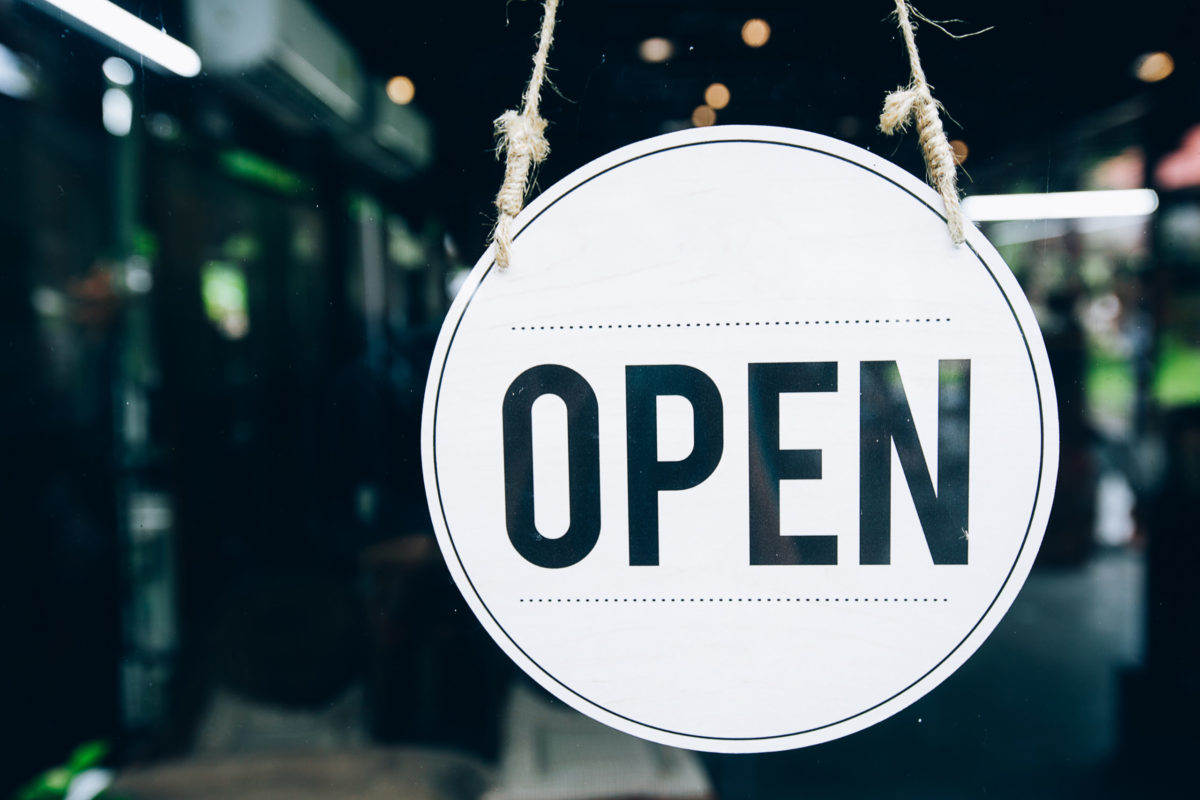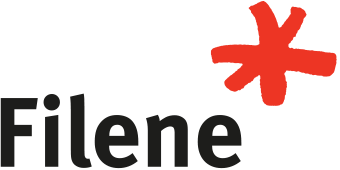This article appeared originally on CreditUnions.com and is the intellectual property of CALLAHAN & ASSOCIATES. No part may be reproduced, transmitted, distributed, published or otherwise communicated, in printed form or electronically, without the express written permission of CALLAHAN & ASSOCIATES.
Small businesses fuel the economic engine of the United States. In 2019 alone, they added 1.8 million net new jobs and employed 47.3% of the private workforce. Small-business owners, however, face myriad challenges when it comes to transitioning their work from a scrappy startup to an established enterprise.
Five years ago, Lennise Jackson-Germany quit her corporate job and began selling healthful, home-cooked meals out of the trunk of her car in Tampa, FL. That fledgling business, which would become Livy O’s Catering, faced a major tipping point in August 2019. That’s when Livy O’s won a contract for the daily catering services of a local charter school with more than 300 students. To fulfill that contract, Jackson-Germany needed capital and cash to hire more employees.
“We applied for lending through various banks and private lenders but kept getting doors slammed in our faces,” Jackson-Germany recalls.
As fate would have it, Suncoast Credit Union ($10.5B Tampa, FL) asked Livy O’s to cater an event it was hosting to launch its micro enterprise development program program. Later, the credit union gave Jackson-Germany a loan to support operations and buy equipment, and, today, business at Livy O’s is up 30%. The catering outfit has a storefront in Brandon, FL, and employs 15 people, including Jackson-Germany’s husband, Omar, who also left his employer to work beside his wife as owner-operator.
Texas To Tampa And Beyond
The story behind Suncoast’s business microloan program began more than two years ago at a meeting hosted by Callahan & Associates of leaders from the country’s most innovative credit unions. It was at that gathering that Suncoast connected with LiftFund, a 501(c)(3) nonprofit small-business lender focused on borrowers with no access to capital from traditional lenders.

Melva McKay-Bass, Senior Vice President Of Business Development, Suncoast Credit Union
“This was my opportunity to get in front of 30 credit unions,” Janie Barrera, president and CEO of LiftFund, says of the serendipitous encounter in 2018. “Suncoast really resonated with how we do business, so we started brainstorming how we could work together.”
Suncoast is the nation’s largest certified community development financial institution (CDFI) lender. When it received its certification in 2016, no credit unions in Florida served the $500 to $25,000 microloan market. So, the conversation between Suncoast and LiftFund, which also has CDFI certification, turned to how to establish a microloan program.
“We work with the staff of LiftFund to provide second-chance financing opportunities to members we cannot help,” says Melva McKay-Bass, senior vice president of business development at Suncoast.
The cooperative obtained a $900,000 CDFI grant in September 2018 and put approximately half the money toward capital for LiftFund loans. But the credit union’s cooperative spirit didn’t end there —it earmarked the other half for upgrades to LiftFund’s loan platform.
“We’re all about collaboration and wanted to create a platform that would benefit other credit unions as well,” McKay-Bass says. “We created a way for others to build a microloan program efficiently and work with an organization that has a proven business model.”
A Face Lift For LiftFund
Through the new loan platform, Suncoast and LiftFund want to make it as easy as possible for small-business owners to access the cash they need. If Suncoast can’t make a loan, the credit union electronically transfers the loan application to LiftFund. If LiftFund approves the loan, the organization transfers the loan information to Suncoast so the credit union can follow up with financial education opportunities and provide personal and commercial services to the member. If LiftFund denies the loan, that same information helps Suncoast work with applicants to become more credit worthy.

Janie Barrera, President And CEO, LiftFund
To launch the new platform, LiftFund matched Suncoast’s $500,000 investment with $250,000 of its own and is creating a standardized underwriting platform, backroom processing operations, and security controls to accept applications made through credit unions in a way that meets NCUA regulatory requirements.
“This project is one of a kind,” Barrera at LiftFund says. “It’s a great model that has not been done before in the banking world or the credit union world.”
From a practical standpoint, LiftFund’s seamless process will prevent credit unions from having to deny a loan and refer borrowers to another lender, which typically forces borrowers to start from scratch on a new loan. Members are less likely to follow through and some opt for more expensive but easier options, such as credit cards or payday loans.
The end goal for both the borrower and the credit union would be to have the credit union buy back the loan or approve a future one.
“We are helping the member build credit and we’re reporting that to the credit bureaus,” Barrera says. “So, the credit union might be in a better position to approve a loan in the future.”
The LiftFund Story
LiftFund started as Accion Texas before rebranding to LiftFund in 2015. President and CEO Janie Barrera was the first employee in 1994. Barrera’s parents ran a restaurant for 20 years in Corpus Christi, TX, but when they retired, they had no pension, no equity in the business, and only $1,000 a month in Social Security.
“We need to help people build equity,” Barrera says. “It’s social justice based on the idea of capitalism. That’s how we’re going to break the cycle of poverty.”
Today, LiftFund has 100 employees and does business in 13 states. It has loaned $28 million with an average loan amount of $25,000 and a 96% repayment rate. Most recently, it announced a $3.75 million revolving loan fund to aid businesses affected by Hurricane Harvey, funded largely by the U.S. Department of Commerce’s Economic Development Administration.
LiftFund hopes to complete the technology upgrade and receive regulatory approval by the fourth quarter of 2020. Once the new system is in place, LiftFund plans to reach out to other credit unions nationwide.
“One of the most expensive parts of our process is the cost of acquisition — we need more people to continue to do this good work,” Barrera says. “We’re going to work with credit unions, so the members come to us. We won’t have to go looking for members.”
Big Steps With Microloans
Suncoast approved its first microloan in June 2019 and issued 16 loans totaling $300,000 in the first nine months of the program. LiftFund issued another $220,000 in loans that did not meet Suncoast’s underwriting guidelines.
“We provide a holistic approach to serve the needs of both personal and business relationships,” McKay-Bass says. “If we can’t help the member because they don’t match our credit criteria, we can provide a secondary resource through LiftFund.”
In addition to Livy O’s catering, Suncoast microloans have supported such small businesses as manufacturers, lawn care firms, growers, and photographers.
“We are focusing on underserved areas,” McKay-Bass says. “In many cases, we help members purchase a key piece of equipment. For example, one piece of camera equipment can take a photographer’s business to the next level.”
That’s a lot of pressure riding on one loan, and Jackson-Germany admits she had a fair amount of fear during the application process. However, she’s quick to note the process was easier than she expected, and Suncoast team members educated her throughout the process.
“We didn’t want anything from our past to haunt us,” the Livy O’s owner says. “We made the conscious decision to be completely honest about everything. Once we received the approval, we laughed at how nervous we had been.”
Of course, Suncoast had to make some key investments itself to ensure the success of the microloan program. In addition to offering monetary assistance, the credit union converted a former community room into a Business Innovation and Solutions Center, which opened on July 1, 2019. The center connects borrowers with mentors, business resources, and financial education, working with local agencies such as the Economic Development Fund and Small Business Development Council to offer coursework and support in financial planning, HR principles, marketing, and more.
“We work with these agencies to provide financial coaching or the space or software to help them provide the financial coaching,” McKay-Bass says. “We try to create opportunities to make it a win–win situation for everybody.”
Additionally, Suncoast introduced a new role — the micro enterprise development specialist — to liaise between small business owners and the credit union’s business lending team.
“We looked for someone who has a heart for service and a background in facilitation who can present and oversee classes and seminars,” McKay-Bass says of the new role. “We needed someone who requires little oversight and is a visionary who can also execute on that vision.”
Funding For The Future
Read the rest of the article here.






Leave a Reply